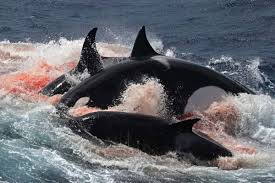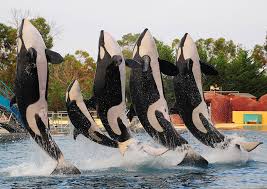What we call an animal says a lot about how we see it. Think about the difference between a house cat and a lion, they’re basically the same creature but have a different story. The orca’s name has gone through a similar transformation. Once known simply by its Latin root orca, today it’s far more known as the “killer whale.” That shift wasn’t random though,it was built on history, misunderstanding, and the way humans tell stories about nature.

The word orca goes way back. In Latin, it referred to a kind of whale or big fish, and the scientific name Orcinus orca ties the animal to Orcus, a Roman god of the underworld. That alone already made the orca sound mysterious and a little intimidating. But it wasn’t until sailors started watching these creatures hunt that the name really took a turn.
Early whalers saw orcas working together to take down enormous prey, even other whales. Imagine being out at sea, watching predators coordinate like a wolf pack in the ocean. It must have been both terrifying but intriguing as well. Those sailors named them how they saw them, which was “whale killers.” Over time, the phrase got flipped around, and that’s how “killer whales” entered our vocabulary.
The name stuck because it was catchy, dramatic, and fed into human fascination with predators. Just as sharks became the villains of the sea, orcas were cast as ruthless hunters. “Killer whale” painted a picture of danger, even though wild orcas have never actually killed a human. The label was more about sailors’ fear and storytelling than about biological reality.
Fast forward a few centuries, and we know a lot more about these animals. Far from mindless killers, orcas are incredibly intelligent, social, and playful. They live in tight family groups, pass down hunting techniques like cultural traditions, and even seem to have regional “dialects” in their calls. Scientists and conservation groups often prefer the term “orca” now, because “killer whale” feels like a smear campaign. It overshadows the fact that these are dolphins but it’s not really a known fact. Hearing that they’re dolphins makes them a little less scary, right?
Still, “killer whale” has a grip on popular imagination. It’s dramatic and easier to remember. Movies and documentaries, from Free Willy to Blackfish, have softened their image, showing us their intelligence and family bonds. But there are still years of history to undo because the question still for many people is do we see them as killers, or as orcas?

In the end, the journey from orca to “killer whale” shows how powerful names really are. They don’t just describe; they define. Orcas didn’t ask for the reputation, but the name shaped how people saw them for centuries. Maybe the lesson is that what we call nature says just as much about us as it does about the animals themselves.